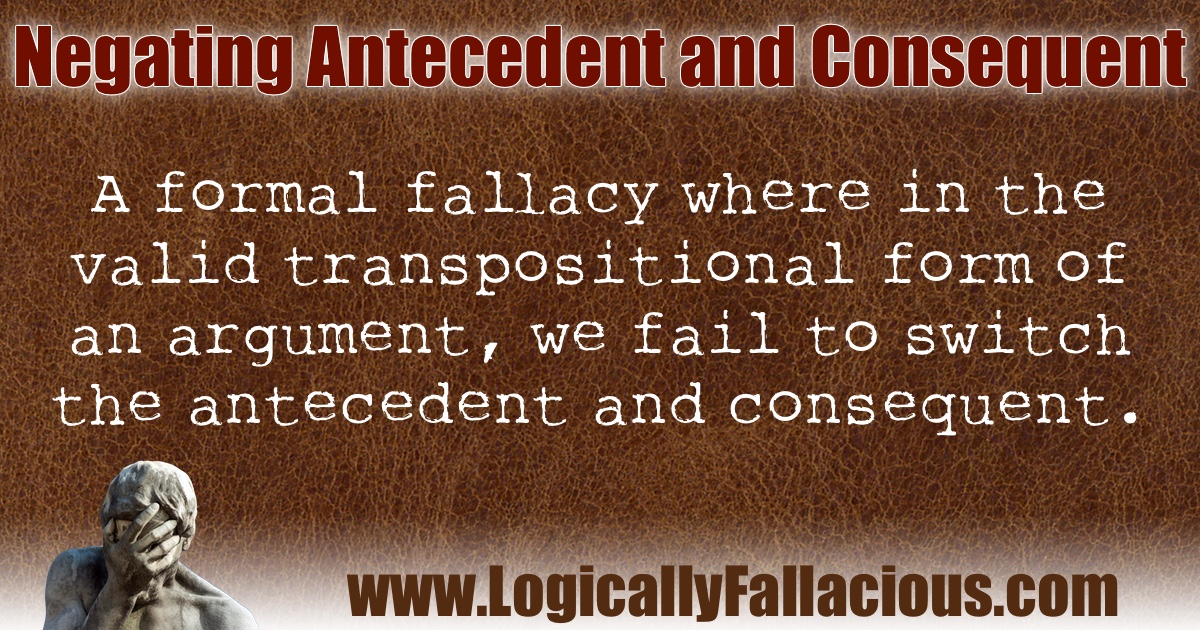(also known as: improper transposition)
New Terminology:
Transposition (contraposition): In a syllogism, taking the antecedent and consequent in the first premise, then “transposing” them in the second premise, and negating each term.
Description: A formal fallacy where in the valid transpositional form of an argument, we fail to switch the antecedent and consequent. The valid form of this argument is as follows:
If P then Q.
Therefore, if not-Q then not-P.
Notice we switch (transpose) the P and the Q, then negate them both. We commit the fallacy when we fail to transpose (switch) them.
Logical Forms:
If P then Q.
Therefore, if not-P then not-Q.
If not-P then not-Q.
Therefore, if P then Q.
Example #1:
If Barry Manilow sings love songs, then he is gay.
Therefore, if Barry Manilow does not sing love songs, then he is not gay.
Explanation: Besides the wildly incorrect premise that if Barry sings love songs he is gay, the conclusion fails to switch the antecedent (Barry Manilow sings love songs) with the consequent (he is gay); therefore, it is fallacious. However, if we did transpose the antecedent and the consequent in the conclusion, it would be a perfectly valid formal argument, even though the premise might not be a reasonable assumption. Remember, a valid, non-fallacious formal argument does not have to have a true conclusion, it just needs to be truth-preserving -- in the case that the premises are all true.
If Barry Manilow sings love songs, then he is gay.
Therefore, if Barry Manilow is not gay, then he does not sing love songs.
Example #2:
If Tom thinks that all people who sing love songs are gay, then he is an idiot.
Therefore, if Tom doesn’t think that all people who sing love songs are gay, then he is not an idiot.
Explanation: We have the same problem with the failure to transpose the antecedent (Tom thinks that all people who sing love songs are gay) with the consequent (he is an idiot) in the conclusion, although we did negate them both. I hope you can see that just because Tom does not think all people who sing love songs are gay, does not mean that Tom is not an idiot for some other reason. This argument is invalid, thus fallacious.
Fun Fact: Barry Manilow was born “Barry Alan Pincus.”
